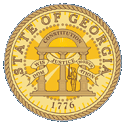Deal: Georgia wins Race to the Top Early Learning Challenge
Gov. Nathan Deal today announced that Georgia was selected as a winner in the Race to the Top Early Learning Challenge. The state is projected to receive more than $50 million to implement its plan over four years.
“Increasing the percentage of Georgia students reading on grade level by the completion of third grade has been a top priority of my administration,” said Deal. “With this strategic investment in our state’s work, we will be able to ensure that more of our youngest students are positioned to meet this critical benchmark and thus improve our long-term economic competitiveness.”
The Race to the Top Early Learning Challenge Grant (RTT-ELC) competition provides funding for states to create a four-year early learning agenda that builds upon and strengthens their current early learning and development systems. Georgia’s application focused on strengthening the state’s 20-year commitment to high-quality early learning. The projects proposed in the grant address all elements of the state’s system, with a focus on meeting Deal’s goal of all children in Georgia reading on grade level by third grade, thereby moving the needle in preparing Georgia’s youngest learners for school, for the workforce and for life.
“Georgia’s plan for high-quality early education was created by hundreds of stakeholders across Georgia over the past three years,” said Bobby Cagle, commissioner of Bright from the Start: Georgia Department of Early Care and Learning (DECAL). “We look forward to making the work of these stakeholders a reality and maximizing the return on this substantial investment in our state’s youngest learners.”
DECAL submitted the application, which encompassed four broad strategies:
1) Increasing Effectiveness: focus on increasing the quality of early education across the state and ensuring that parents have access to higher quality programs.
2) Workforce Development: create and expand educational opportunities and incentives for Georgia’s early care and education workforce.
3) Alignment: align many of Georgia’s early education initiatives and create geographical service areas to better serve all Georgians across the state.
4) Accountability: ensure the state can prove the effectiveness of investments in early childhood education through improved student outcomes.
“Georgia’s leaders understand that it is easier and much more cost effective to ‘get it right’ at the beginning of the education continuum than to help students ‘catch up’ through remediation in the middle or at the end of their academic careers,” said Paul Bowers, President and CEO of Georgia Power Co, which submitted a letter in support of the grant. “Georgia’s win in the Early Learning Challenge is also a win for Georgia’s economic development and the thousands of businesses in our state looking for a qualified and effective workforce.”
